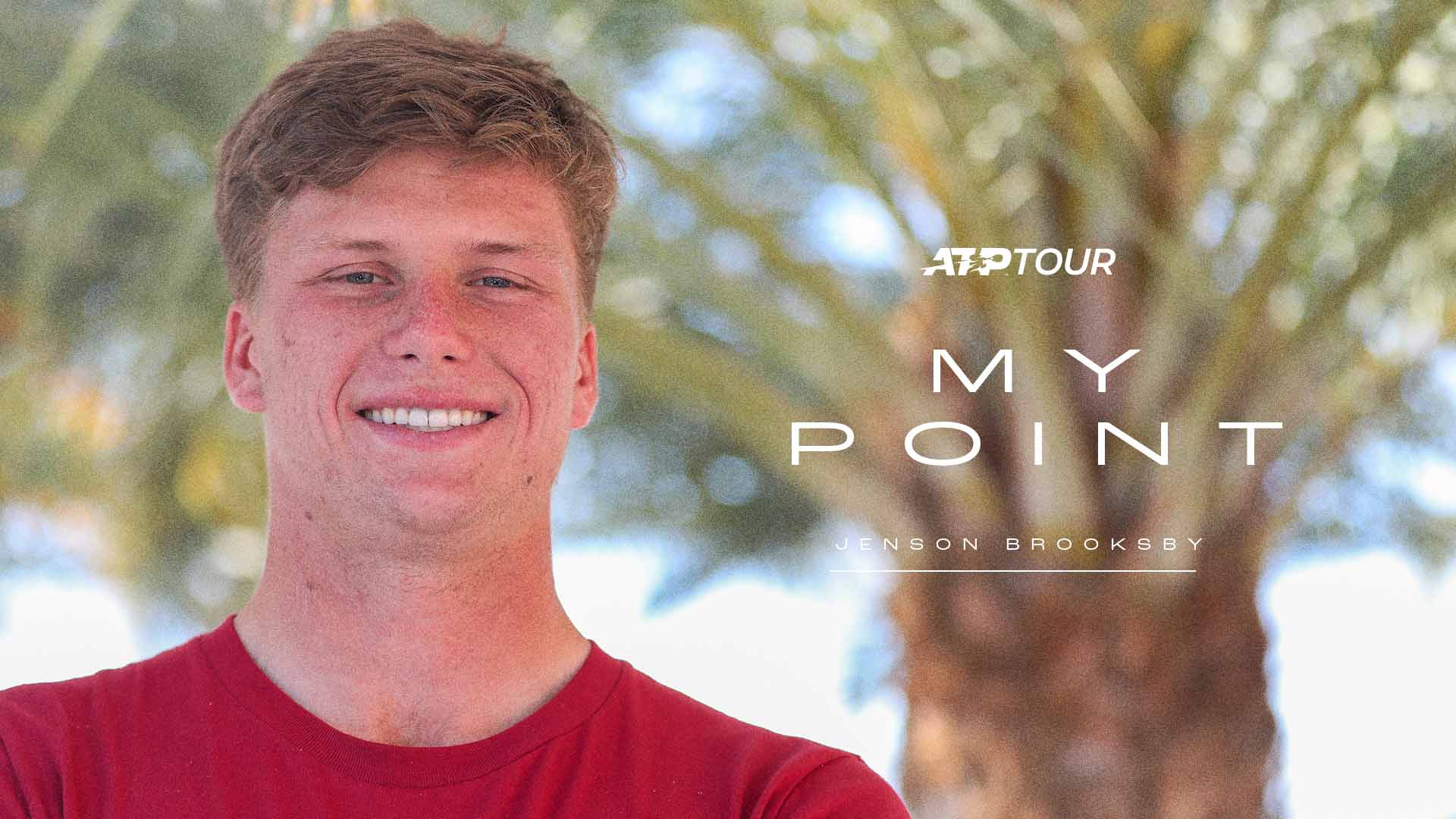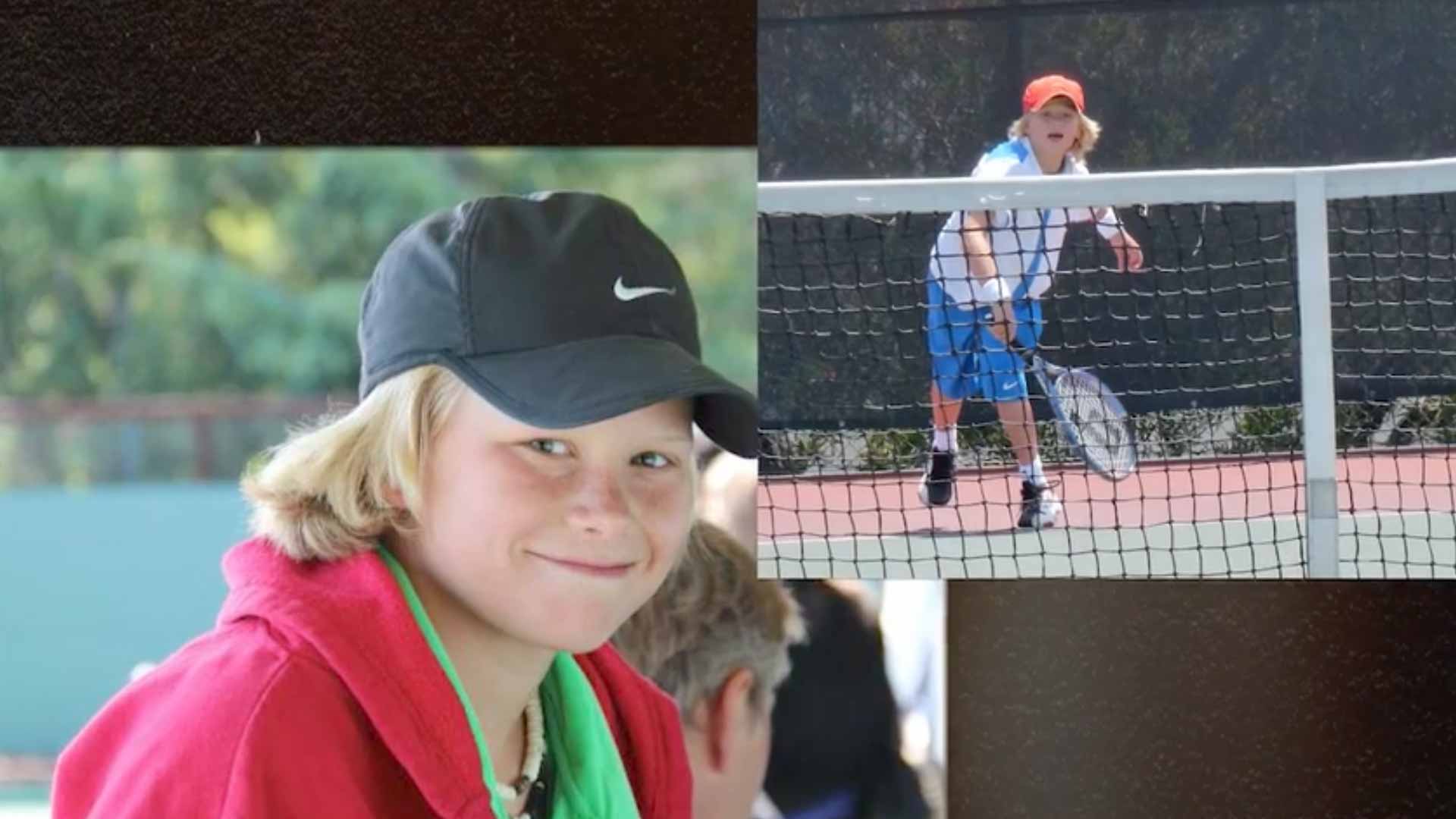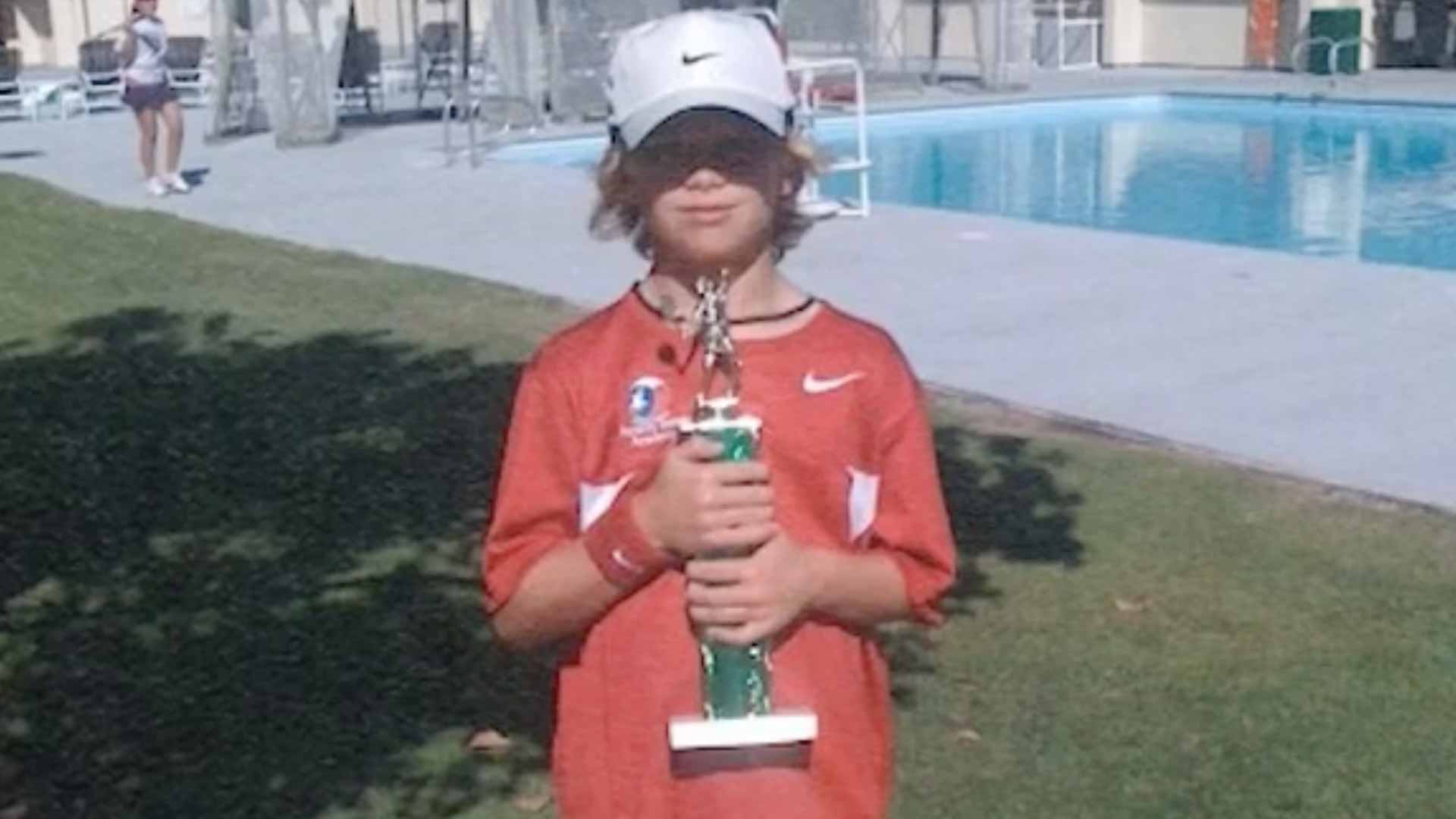

This year’s Houston tournament was probably the best week of my life.
I started the event as a qualifying wild card and faced at least one match point in three separate matches. That is as big of a challenge as you will face on court, but I found a way to win the title. One of my biggest goals since becoming a professional tennis player was to earn an ATP Tour trophy. Accomplishing it meant the world to me.
In January, I returned from multiple wrist surgeries and a shoulder injury, so saving match points was just another obstacle to overcome. What most people do not know is that I have been dealing with more than injuries and difficult matches throughout my life.
In December, I shared for the first time that as a child I was diagnosed on the severe end of the autism spectrum.
Around one in 100 children are diagnosed with autism spectrum disorder, so I am like millions of people around the world. But it is not something you hear many professional athletes speaking about.
In just a few months, I have received so many positive messages from people, whether it has been on social media or from fans in person. The whole experience has been very rewarding, especially to win a title in April, which is World Autism Month.
After the trophy ceremony and the ensuing photoshoot, a girl approached me and told me she was on the spectrum, too, and that it was very cool to see me win the title. She explained that it was nice to have me as an example of someone with autism doing good things, which really struck me. Growing up, I never had someone with a similar story to look to for inspiration, so this resonated with me.
I thanked her for feeling comfortable enough to speak to me about it and said I was glad to help in some way. That moment brought the biggest smile to my face.
I had a great week on the court and that was important in itself, but it was about more than advancing round to round. Winning also gave me the chance to hear more stories from people I met at the tournament. If I had lost in the first or second round, I wouldn't have been there as long, and I would not have gotten as many messages on social media or raised as much awareness about autism as I hopefully did.
Winning meant a lot, but the week was about so much more.
# # #
For my entire life, I kept my diagnosis quiet.
I was nonverbal until the age of four and went through intensive ABA therapy for 40 hours per week. My parents believed that harder work at a younger age could shape who I would become in the future, because it is easier to learn earlier on.
When I was younger, there were a couple times when people did not necessarily say something, but you could get a sense of what they were thinking about me based on their actions. In social situations in school, I was always a little more introverted. I wasn't the most social person and didn't make friends as easily as others, either.

My parents did not hide my diagnosis from me. A majority of what I heard about the disorder growing up was through conversations I would hear between my parents and experts, which would make me think about it more. Looking back, I am glad that I knew because the earlier in life you find out, the more prepared you are for the future and the better you can manage it.
It was not always easy, though. You would sometimes be nervous about potentially being judged, especially negatively. But there are certain things in society that people have become more comfortable discussing today, which is what helps make telling my story easier.
My parents have always said I had a great attention to detail. My brain is wired to focus on fewer things than others, but to do it really well. When other young kids might have done something for a few minutes and moved on, I would hit a tennis ball against the garage door for an hour without a problem. Not only was I able to focus on it — I just really enjoyed it, and that is a big reason why I fell in love with the sport.
On the court, the biggest effect autism has is related to my sensory feelings. My brain is a bit more sensitive to things like crowd noises than most. Throughout my life, I have been distracted by noises and they can get stuck in my head longer.
When I was 17, I won the USTA Boys’ 18s National Championships. In the final I played Brandon Nakashima and it was a pretty big crowd to deal with. We played on the centre court, in the middle of a row of five courts. With many fans in the crowd, staff members and college coaches all around, it was a lot and there was a main draw wild card into the US Open at stake. I was not ready for how that was going to feel and it added a lot of extra nerves and stress.
In the moment, I was playing a match, but also thinking about how I would be judged by all those people. That does not mean it was all negative by any means, but that is what your mind focuses on. Like anything in life, the more you are in those situations, the easier it becomes.
Only a few years later I played Novak Djokovic at the US Open inside Arthur Ashe Stadium, the biggest tennis-only stadium in the world. It was a much bigger stage, but having experiences under my belt, I mostly felt good, nervous butterflies. I have grown to love performing in front of those amazing atmospheres.
There have been things that are not great, too. I fully admit that I have had outbursts on the court. It would happen if I was upset about losing or really focused on something in particular I was doing wrong. I worked really hard on fixing that while I was injured, and it has really helped that my team now understands what I am going through on the inside.
Until very recently nobody knew this side of me. A big moment for me was when I told my agent, Amrit, in October 2023. We went to dinner in Dallas for a regular catchup and I simply let him know.
Amrit did not flinch or react in any way. He just said, ‘Okay dude, that’s great’. That was really important to me because I did not know how people outside my family would react. I then told a couple of other people in my inner circle and team and it was such a relief that knowing such a personal thing about my life did not change how they spoke to or treated me. That was big and gave me a lot of confidence to open up even more.
I always wanted to be transparent about myself. I thought if I would be able to move past storing this inside, there was potential to really help other people.
Amrit explained to me how allowing him to know helped him communicate with me on a daily basis and that I had an important opportunity to do something bigger than myself. When you are living with something, you can’t see the bigger picture, and I think discussing it made me even more excited to finally share my story to raise awareness.
After more than a year we decided to talk to a reporter with The Associated Press about it. I had never spoken about being on the spectrum in front of anyone outside of my innermost circle, so of course there were nerves. It was a new situation for me, like playing in front of a big crowd for the first time.
You can visualise what revealing such a personal situation to the world will look like, but it is impossible to know exactly how you will feel. It was difficult, but I was confident enough in my decision that I felt good about it.
A few months later, I could not be happier that I did it.

# # #
It has hit me that I am not going to play professional tennis forever.
I am going to need to do something for the rest of my life after I hang up my racquet. Life is about a lot more than just tennis. I believe that being transparent about autism is making me a more well-rounded person not only now, but for the rest of my life.
One of the nicest things since I made my announcement is the number of people I have heard from both in person and on social media. Any time I receive a negative message, it sticks in my mind very easily, and I'm a little fragile to that. But I have done the best I can to insulate myself from that and focus on the good.
In Houston, a parent whose two kids are on the spectrum approached me and said they were able to look up to me and use me as an example, to aspire to keep going in their sport. Autism was no longer an excuse for them, or a reason to give up in the face of some extra challenges.
That was my ultimate goal in speaking about this.
If you see me around the world, I am always available to chat. Of course, only do it if you feel comfortable. But if you are on the spectrum, feel free to ask questions that you're most worried about. I am not a professional, but I would love to help as much as I can and I will be happy to tell you how I dealt with certain situations and share my experiences.
I knew I wanted to become a tennis player since I was 12 years old. I did not have a role model who I could look up to and say, ‘Wow, they are autistic and actually managed to make it in tennis’.
This is not only about kids who want to become a tennis player. It can be someone who is on the spectrum with a dream of pursuing any career, in sports or otherwise.
If I do well on court, great. But if I can make a difference for anyone in the world by doing so, even better.
- as told to Andrew Eichenholz
Read more feature from ATPTour.com's My Point series